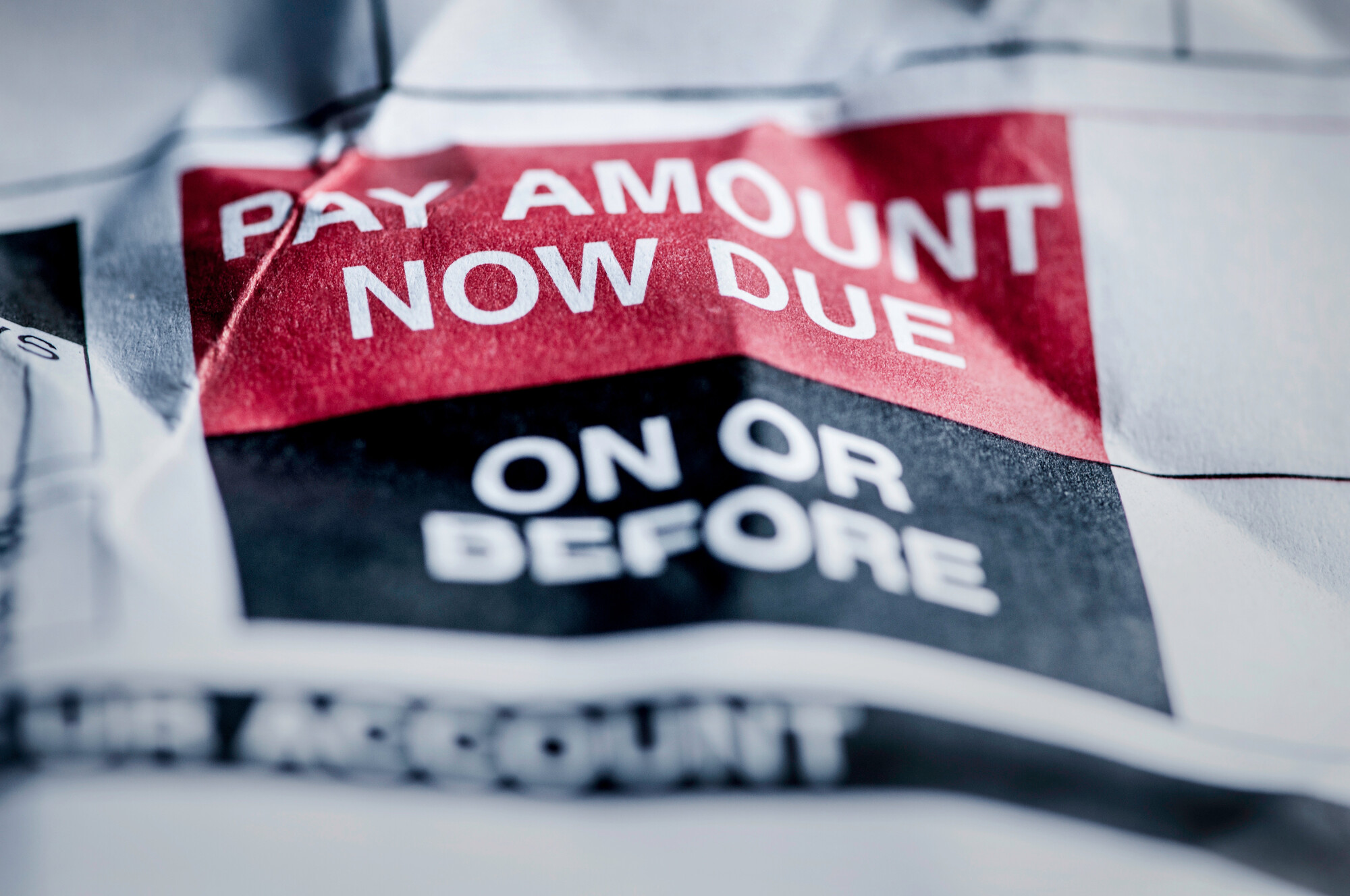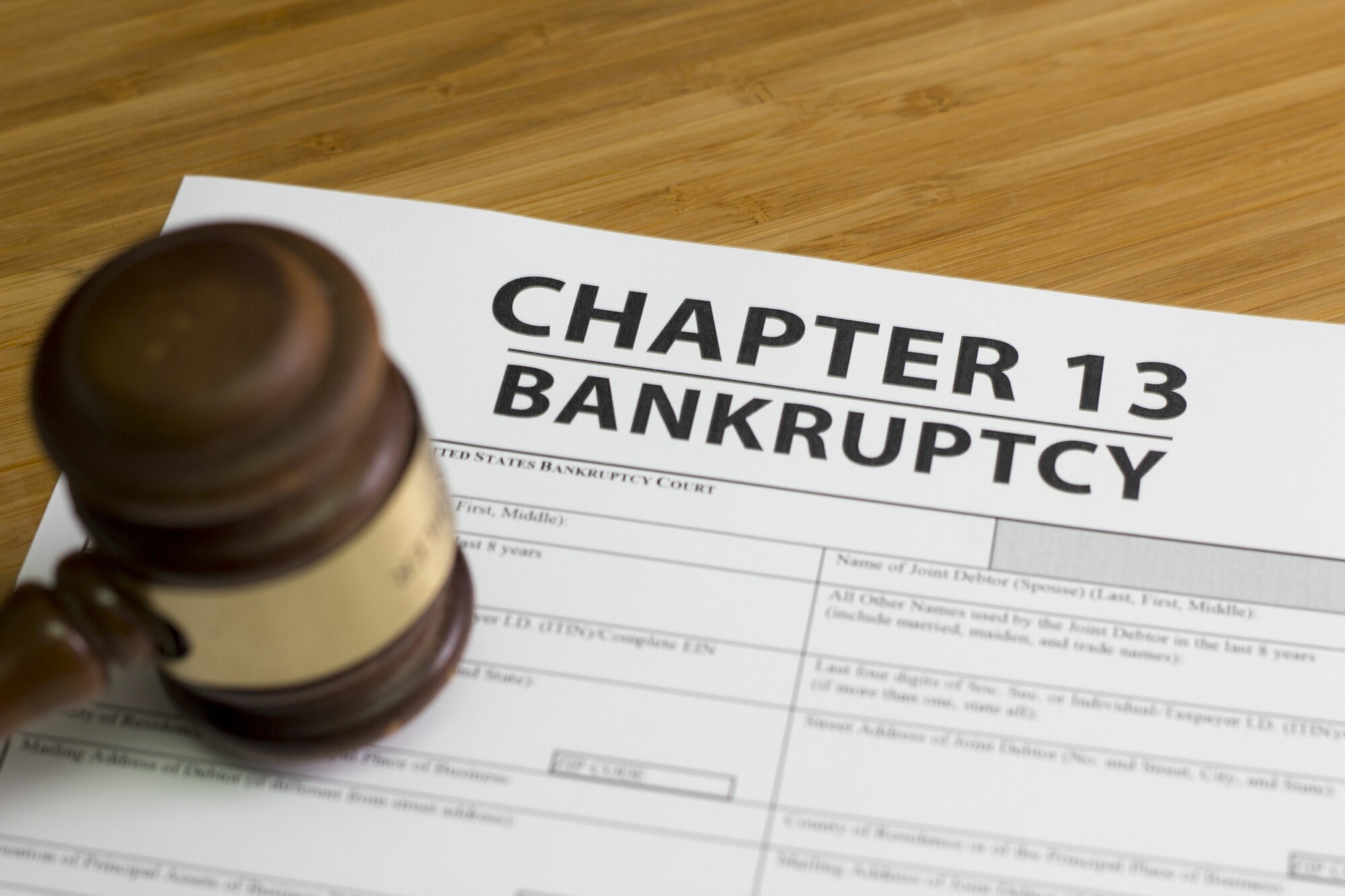
Michigan Bankruptcy Blog
 On March 1, 2023, the U.S. Sixth Circuit Court of Appeals issued a decision with important implications for parties involved in debt collections regulated under the Fair Debt Collection Practices Act (FDCPA)[1]. The decision, in Bouye v. Bruce[2], examined the FDCPA’s one-year statute of limitations for claims of improper debt collection practices, finding that the one-year period of limitations applied to each discrete violation of the FDCPA claimed by the plaintiff.
On March 1, 2023, the U.S. Sixth Circuit Court of Appeals issued a decision with important implications for parties involved in debt collections regulated under the Fair Debt Collection Practices Act (FDCPA)[1]. The decision, in Bouye v. Bruce[2], examined the FDCPA’s one-year statute of limitations for claims of improper debt collection practices, finding that the one-year period of limitations applied to each discrete violation of the FDCPA claimed by the plaintiff.
 The U.S. Court of Appeals for the Sixth Circuit recently ruled in a case involving a Chapter 13 debtors’ attempt to shield contributions to a 401(k) retirement account from “projected disposable income,” therefore making such amounts inaccessible to the debtors’ creditors.[1] For the reasons explained below, the Sixth Circuit rejected the debtors’ arguments.
The U.S. Court of Appeals for the Sixth Circuit recently ruled in a case involving a Chapter 13 debtors’ attempt to shield contributions to a 401(k) retirement account from “projected disposable income,” therefore making such amounts inaccessible to the debtors’ creditors.[1] For the reasons explained below, the Sixth Circuit rejected the debtors’ arguments.
 A statute must be interpreted and enforced as written, regardless, according to the U.S. Court of Appeals for the Sixth Circuit, “of whether a court likes the results of that application in a particular case.” That legal maxim guided the Sixth Circuit’s reasoning in a recent decision[1] in a case involving a Chapter 13 debtor’s repeated filings and requests for dismissal of his bankruptcy cases in order to avoid foreclosure of his home.
A statute must be interpreted and enforced as written, regardless, according to the U.S. Court of Appeals for the Sixth Circuit, “of whether a court likes the results of that application in a particular case.” That legal maxim guided the Sixth Circuit’s reasoning in a recent decision[1] in a case involving a Chapter 13 debtor’s repeated filings and requests for dismissal of his bankruptcy cases in order to avoid foreclosure of his home.
 Once a Chapter 7 debtor receives a discharge of personal debts, creditors are enjoined from taking action to collect, recover, or offset such debts. However, unlike personal debts, liens held by secured creditors “ride through” bankruptcy. The underlying debt secured by the lien may be extinguished, but as long as the lien is valid it survives the bankruptcy.
Once a Chapter 7 debtor receives a discharge of personal debts, creditors are enjoined from taking action to collect, recover, or offset such debts. However, unlike personal debts, liens held by secured creditors “ride through” bankruptcy. The underlying debt secured by the lien may be extinguished, but as long as the lien is valid it survives the bankruptcy.
 A Chapter 13 bankruptcy plan requires a debtor to satisfy unsecured debts by paying all “projected disposable income” to unsecured creditors over a five-year period. In a recent case before the U.S. Court of Appeals for the Sixth Circuit (the “Sixth Circuit”), the court grappled with whether a Chapter 13 debtor’s wages that are contributed to an employer-sponsored retirement plan are considered disposable income under the Bankruptcy Code.[1]
A Chapter 13 bankruptcy plan requires a debtor to satisfy unsecured debts by paying all “projected disposable income” to unsecured creditors over a five-year period. In a recent case before the U.S. Court of Appeals for the Sixth Circuit (the “Sixth Circuit”), the court grappled with whether a Chapter 13 debtor’s wages that are contributed to an employer-sponsored retirement plan are considered disposable income under the Bankruptcy Code.[1]
In bankruptcy, a debtor must relinquish assets to satisfy debts. But there are exceptions to this general rule. Certain assets may be exempted from a debtor’s bankruptcy under federal and state law. Other assets, which are subject to a contractual loan agreement and the security interest of a lender, may be “reaffirmed” by a debtor pursuant to a reaffirmation agreement. The debtor may keep the asset, such as a house or a car, as long as the debtor enters into a new agreement with the lender that reaffirms the debt according to defined contractual terms, which may or may not track the original loan terms.
In a recent opinion, the U.S. Court of Appeals for the Sixth Circuit (the “Court”) ruled that penalties assessed by the state of Michigan against two debtors, stemming from fraud associated with the wrongful receipt of Michigan unemployment benefits, are non-dischargeable in Chapter 13 bankruptcy pursuant to Bankruptcy Code § 523(a)(2).1
On June 26, 2017, the Supreme Court granted certiorari in PEM Entities v. Levin to decide whether bankruptcy courts should apply a federal multi-factor test or an underlying state law when deciding whether to re-characterize a debt claim as equity. The Court’s decision to grant cert in this case should resolve a circuit split and clarify the law as it relates to re-characterizing corporate debt as equity.
In a recent decision, the Bankruptcy Appellate Panel of the Sixth Circuit (the “Court”) considered the issue of asset “abandonment” in a Chapter 7 case[1]. The Court reversed the bankruptcy court’s decision to allow the Chapter 7 trustee to compromise a claim that the debtor argued the trustee had abandoned.
[1] In re: Wayne L. Wright, Docket No. 16-8019 (6th Cir. BAP, April 17, 2017).
In the case of Susan G. Brown v. Douglas Ellmann [1], the U.S. Court of Appeals for the Sixth Circuit (the “Sixth Circuit”) recently affirmed a bankruptcy court’s decision to deny a Chapter 7 debtor’s proposed exemptions for the value of redemption rights she enjoyed under Michigan law related to the sale of a property she surrendered to the bankruptcy estate.
[1] Case No. 16-1967 (6th Cir., March 20, 2017).
Chapter 13 bankruptcy allows debtors to confirm plans that provide for the payment of their debts through future earnings while, at the same time, retaining their assets. If a creditor wishes to receive payments pursuant to a debtor’s plan, the creditor must file a proof of claim. And it must do so timely.
In a recent case, a lawyer was sanctioned by an Ohio bankruptcy judge for his conduct in connection with an adversary proceeding he brought on behalf of a client against a Chapter 7 debtor. The lawyer was vindicated, though, after the Bankruptcy Appellate Panel of the Sixth Circuit (the “BAP”) reversed the bankruptcy court on appeal.
Sixth Circuit Affirms Bankruptcy Court Order Allowing Amended Exemptions Following Re-Opening of Case
In a Chapter 7 bankruptcy case, a debtor is required to file a schedule listing all of the debtor’s property. This includes cash, hard assets such as furniture and cars, as well as intangibles such as causes of action or potential causes of action. The Bankruptcy Code allows debtors to “exempt” certain types of property from the estate, enabling them to retain exempted assets post-bankruptcy.
In a recent opinion, the U.S. Court of Appeals for the Sixth Circuit analyzed the limits of a bankruptcy court’s authority to disallow claimed exemptions.
Upon the filing of a bankruptcy petition, an automatic stay goes into effect which provides a debtor with immediate protection from collection efforts by creditors. But the automatic stay is not without limitations.
In a recent opinion, the U.S. Court of Appeals for the Sixth Circuit recently considered whether the automatic stay should apply to prevent a foreclosure sale in a case in which the debtor’s good faith, actions and credibility in filing for Chapter 13 were called into question.[1] The Sixth Circuit ruled against the debtor, affirming the bankruptcy court’s earlier findings that the debtor’s actions were “outrageous.”
While Chapter 7 bankruptcy offers individuals a fresh start and discharge from many debts, it doesn't come without a price. Property of the debtor becomes property of the estate and is used to pay creditors.
But not all of it. Section 522 of the Bankruptcy Code lists exemptions that debtors can use to exempt property - up to a certain dollar amount in value - from the estate. The purpose of exemptions is to ensure that the individual debtor is able to maintain a basic standard of living post-bankruptcy. But because there are very few assets available for creditor recovery beyond exempt property in many bankruptcy cases, the propriety of a debtor's claimed exemptions is an issue that is oft-litigated.
Such was the case in an appeal to the U.S. Court of Appeals for the Sixth Circuit (the "Sixth Circuit") arising from a Chapter 7 bankruptcy case that was filed in the U.S. Bankruptcy Court for the Eastern District of Michigan.
From Ponzi schemes to fraudulent transfers, many Chapter 7 bankruptcy cases involve allegations of wrongdoing. Bankruptcy trustees, who stand in the shoes of the bankrupt entity in asserting claims, often bring actions against third parties alleging participation in, and orchestration of, fraudulent schemes. Because the alleged wrongdoing many times involves actions or transactions in which the debtor took part, defendants in such lawsuits frequently raise a defense based on the doctrine of in pari delicto.
The financial and housing crisis that began in 2008 led to a huge wave of foreclosures and foreclosure-related litigation. While foreclosure is rooted in state law, the initiation of a foreclosure proceeding by a lender often leads to federal bankruptcy proceedings initiated by a borrower, giving rise to interesting legal issues involving the interplay of state foreclosure law and federal bankruptcy law. Recently, the U.S. Court of Appeals for the Sixth Circuit (the "Sixth Circuit") considered the implications of a foreclosure on a residence following the borrowers' Chapter 7 bankruptcy proceeding.[1]
When someone files for bankruptcy, an estate is created that consists of, among other things, any and all assets owned by, or to which the debtor filing the bankruptcy case has a right to or interest in. This includes tangible things such as real estate, vehicles, money, clothing, and jewelry, as well as rights to property such as litigation claims.
In a Chapter 7 case, all assets belong to the trustee on the date a case is filed unless an exemption is claimed, and the trustee gets to keep, sell or otherwise administer assets for the benefit of creditors.
When it comes to determining "property of the estate," timing is important. Generally speaking, a debtor gets to retain property acquired after the bankruptcy filing occurs.
One of the fundamental tenets of a business bankruptcy reorganization plan under Chapter 11 of the Bankruptcy Code is the "absolute priority rule." This rule, codified in section 1129(b)(2)(B)(ii) of the Bankruptcy Code, provides that every unsecured creditor must be paid in full before the debtor can retain any property under a reorganization plan. Chapter 11, however, is not solely the domain of business debtors. Individuals (who more commonly seek protection under Chapters 7 and 13) may also file for Chapter 11. So how does the absolute priority rule affect individual debtors? That issue is analyzed in a recent opinion, Ice House America, LLC v. Cardin, issued by the U.S. Court of Appeals for the Sixth Circuit.
One of the most interesting, and at times vexing, issues that arises in bankruptcy proceedings involves the jurisdiction of the bankruptcy courts. In 2011, the U.S. Supreme Court weighed in with its noteworthy decision in Stern v. Marshall, in which it held that bankruptcy courts lack the constitutional authority to enter a final judgment on a state law counterclaim that is not related to the bankruptcy proceeding. Since Stern, a number of cases have been published - at both the bankruptcy court and court of appeals level - where Stern jurisdictional issues have been raised and adjudicated.
Baldridge v. Douglas Stanley Ellmann (In re Baldridge), Appeal No. 13-1700 (6th Cir., Feb. 3, 2014).
On appeal from the District Court for the Eastern District of Michigan, the Sixth Circuit held that a $28,000 “carve out” recovered by the Chapter 7 Trustee pursuant to 11 U.S.C. § 506(c) after closing a sale on the debtors’ property was not property of the estate that could be subject to the debtors’ exemption because the property was over encumbered by two mortgages, leaving no equity for the debtors to exempt.
Lindsey v. Pinnacle Nat’l Bank (In re Lindsey), Appeal No. 12-6362 (6th Cir., Aug. 13, 2013)
The Sixth Circuit held this week in a published opinion that a bankruptcy court’s denial of confirmation of a Chapter 11 plan is not a final appealable order. In so holding, the Sixth Circuit joins four other circuits, while three other circuits have held to the contrary.
In a recent opinion, the Sixth Circuit has provided clarification of Stern v. Marshall's1 holding by analyzing Article III “judicial power,” the pubic rights doctrine, and the bankruptcy court's authority.
In Waldman, the Western District of Kentucky Bankruptcy Court entered a judgment against the principal creditor after finding that the creditor had defrauded the debtor and had acquired nearly all of the debtor’s assets by means of fraud. The Bankruptcy Court entered a judgment discharging the debts the debtor owed the creditor and awarded the debtor a judgment of more than $3 million in compensatory and punitive damages. The creditor appealed the Bankruptcy Court’s entry of a final judgment based upon three challenges: (1) the debtor’s state law fraud claims are beyond the jurisdiction of the federal court; (2) the judgment entered was beyond the statutory authority of the bankruptcy court; and (3) the judgment was beyond the bankruptcy court’s power pursuant to Article III of the Constitution.
Auday v. Wet Seal Retail, Inc., Case No. 12-5057 (6th Cir., Oct. 25, 2012) (recommended for full-text publication).
As most bankruptcy practitioners know, a debtor’s pre-petition cause of action – whether for personal injury, breach of contract, or other claim – is property of the bankruptcy estate. Now, the Sixth Circuit has clarified that only the trustee can file suit in connection with a Chapter 7 debtor’s pre-petition cause of action, unless the action is abandoned.
The Sixth Circuit Court of Appeals recently held that Michigan's bankruptcy-specific exemption statute is constitutional under the Bankruptcy Clause and Supremacy Clause of the United States Constitution.
Historically, Michigan has allowed bankruptcy debtors to use the federal exemptions under 11 U.S.C. § 522(d), the general state exemptions under M.C.L. § 600.6023, or the state exemptions pursuant to M.C.L. § 600.5451 that are specific to debtors in bankruptcy (prior to it being declared unconstitutional).
Michigan is one of a few states that has a bankruptcy-specific exemption statute available to bankruptcy debtors only. In the Western District of Michigan, the constitutionality of the bankruptcy-specific scheme was called into doubt by the Hon. James D. Gregg in In re Pontius, 421 B.R. 814 (Bankr. W.D. Mich. 2009) and the Hon. Jeffrey R. Hughes in In re Wallace, 347 B.R. 626 (Bankr. W.D. Mich. 2006). Contrarily, the Hon. Scott W. Dales, held that the bankruptcy-scheme was constitutional in In re Schafer, 428 B.R. 720 (Bankr. W.D. Mich. 2010), pursuant to Sixth Circuit precedent and Congress' delegation of power to the states pursuant to 11 U.S.C. § 522(b) to create bankruptcy exemptions.
The Sixth Circuit Court of Appeals recently affirmed a decision of the United States District Court for the Southern District of Ohio based upon the District Court's holding that the automatic stay does not prevent the issuance of injunctive relief.
On an issue of first impression before the Sixth Circuit, the Court held that post-petition income that becomes available after a debtor completes repayment of a 401(k) loan is projected disposable income that must be turned over to the Trustee for distribution to unsecured creditors pursuant to Section 1325(b)(1)(B) and may not be used to fund voluntary 401(k) plans.
In this case, both debtors (on consolidated appeal) were making payments to a 401(k) loan, which would be paid off during the life of the Chapter 13 plan. Neither debtor was making contributions to their 401(k) retirement accounts at the time the petitions were filed. The debtors proposed to use the income (available after full repayment of the 401(k) loan) to start making contributions to their 401(k) retirement accounts. The Trustee objected on the issue of whether the debtors must include the income resulting from the payoff of the 401(k) loans to their respective plans considering neither debtor was making 401(k) contributions at the time the petitions were filed.
Richardson v. Citimortgage, Inc. (In re Emerson), unpublished opinion, BAP No. 11-8015 (Oct. 7, 2011).
The Bankruptcy Appellate Panel of the Sixth Circuit ("BAP") has rejected a trustee's efforts to avoid a mortgage that was mistakenly discharged because the discharge was rescinded before the debtor's bankruptcy filing.
The Eastern District of Michigan Bankruptcy Court recently held that a debtor can exempt an inherited IRA under 11 U.S.C. § 522(d)(12).
The Eastern District Bankruptcy Court denied the Trustee's objection to an exemption claimed pursuant to § 522(d)(12) by a debtor in IRAs that she had inherited from her father. The Court further rejected the Trustee's argument that inherited IRA funds cannot be considered "retirement funds" under § 522(d)(12) because the funds were not contributed to the IRA by the debtor. Rather, the Court adopted the debtor's reasoning that the explicit language of § 522(d)(12) does not make a distinction between "inherited IRAs" and IRAs to which the debtor made the contributions.
In re Schafer, 6th Cir. B.A.P., Feb. 17, 2011 (2011 WL 534752, authored by Hon. Marci B. McIvor).
Under the Bankruptcy Code, debtors may choose between the federal exemptions listed in 11 U.S.C. § 522(d) or exemptions available under state law, unless their state has "opted out" of the federal exemption scheme. Michigan has not opted out, so debtors may choose between federal and state exemptions. Since 2005, Michigan law has provided two alternative state-law exemption schemes:
In re Hillenbrand, Bankr. E.D. Mich., Feb. 4, 2010 (Case No. 09-75574, Hon. Steven Rhodes).
Although the commencement of a bankruptcy case usually stays a pending state court action against the debtor, a recent decision of the Bankruptcy Court for the Eastern District of Michigan concluded that the stay does not preclude an action seeking an injunction.
